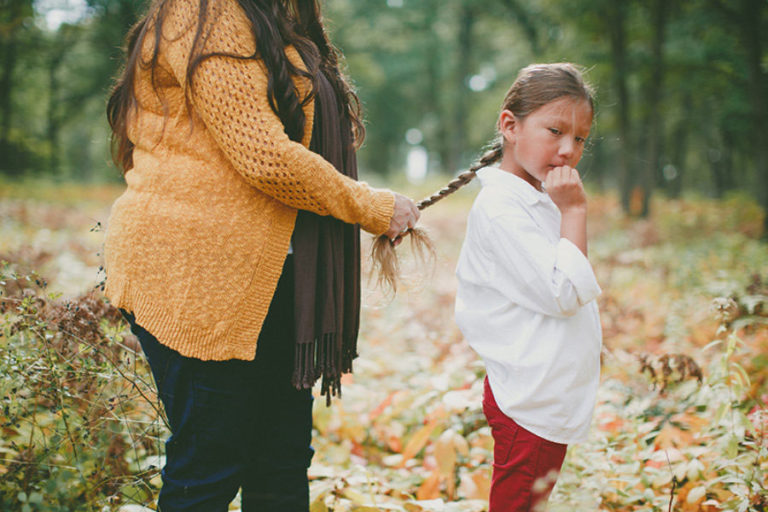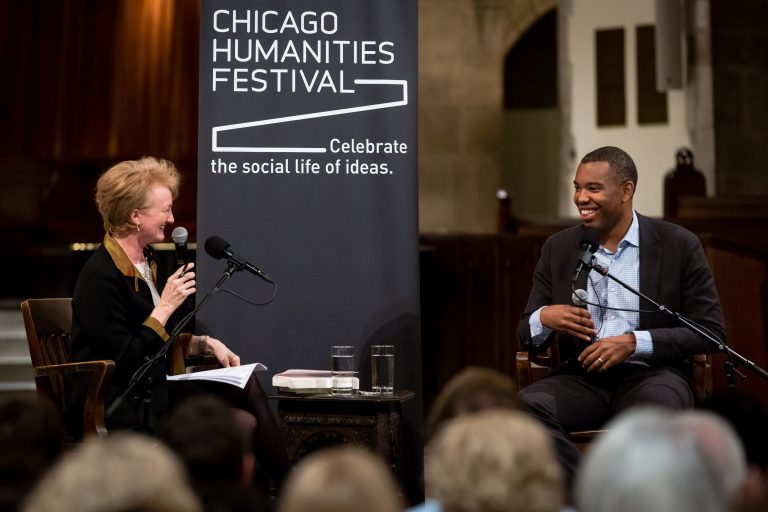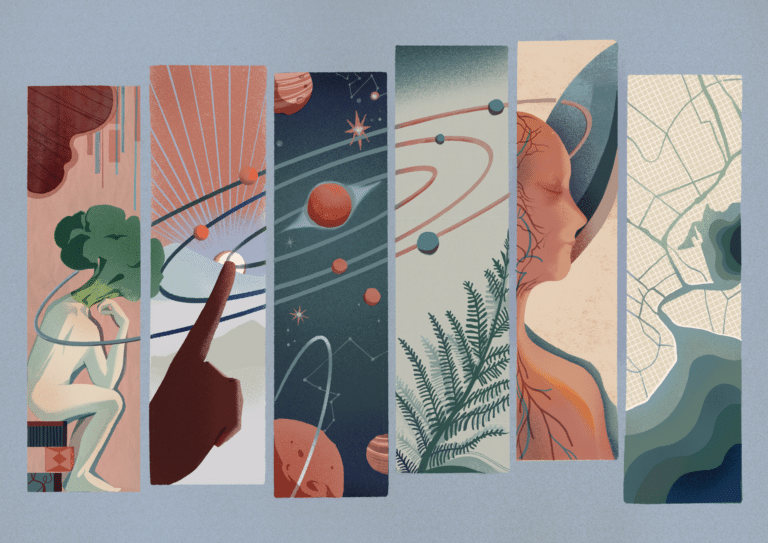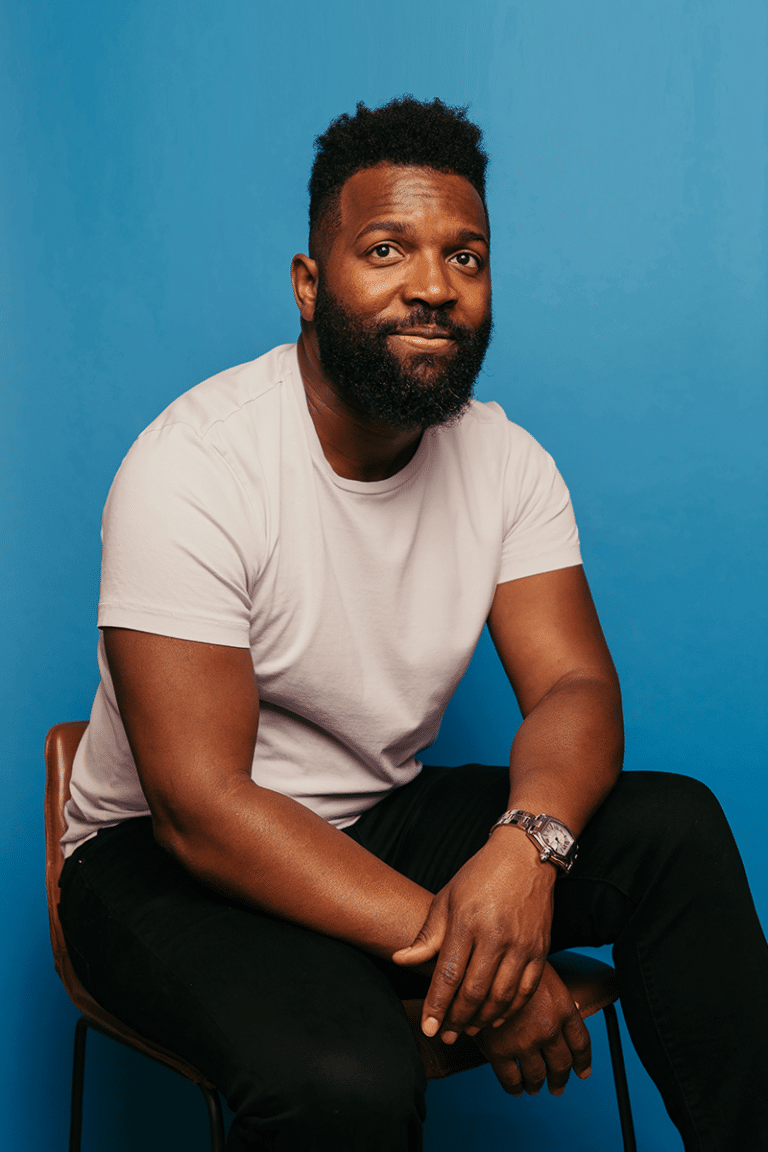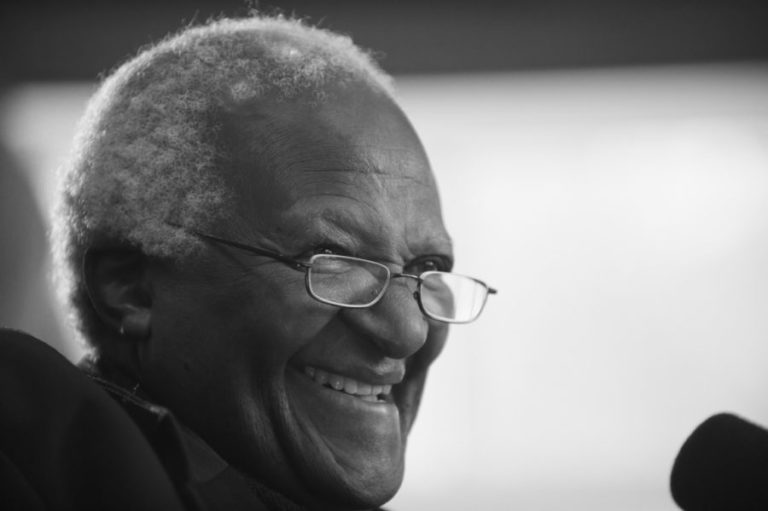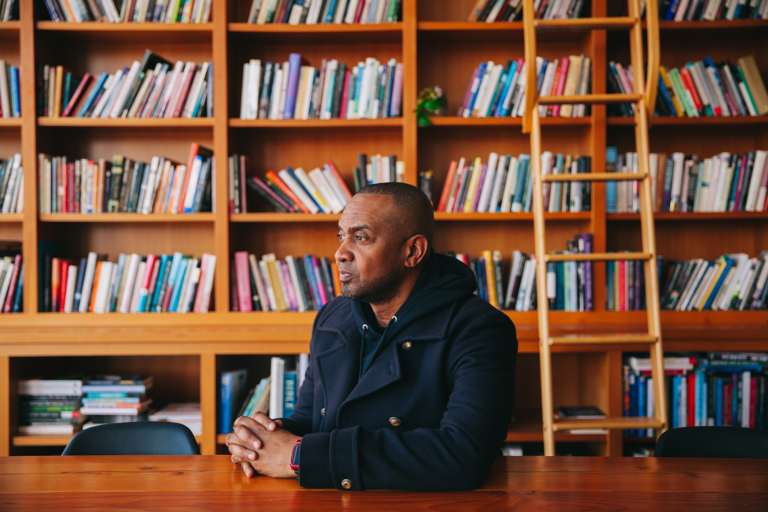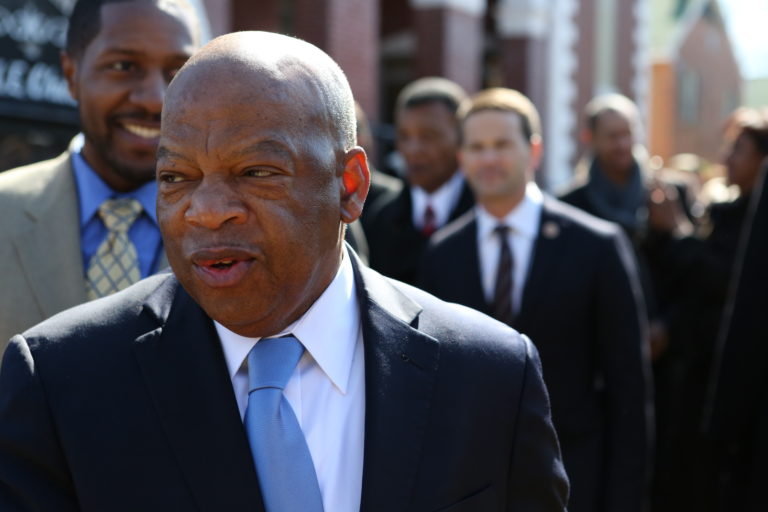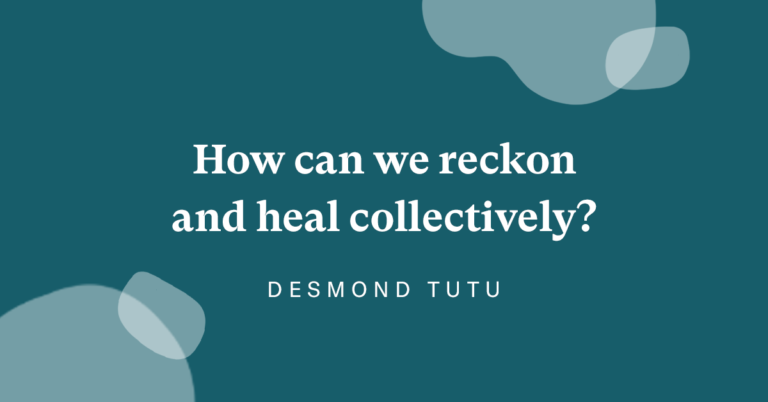Layli Long Soldier is a writer, a mother, a citizen of the United States, and a citizen of the Oglala Lakota Nation. She has a way of opening up this part of her life, and of American life, to inspire self-searching and tenderness. Her award-winning first book of poetry, WHEREAS, is a response to the U.S. government’s official apology to Native peoples in 2009, which was done so quietly, with no ceremony, that it was practically a secret. Layli Long Soldier offers entry points for us all — to events that are not merely about the past, and to the freedom real apologies might bring.
Restorative Justice
Featured Items
Ta-Nehisi Coates says we must love our country the way we love our friends — and not spare the hard truths. “Can you get to a place where citizens are encouraged to see themselves critically, where they’re encouraged to see their history critically?” he asks. Coates is a poetic journalist and a defining voice of our times. He’s with us in a conversation that is joyful, hard, kind, soaring, and down-to-earth all at once. He spoke with Krista as part of the 2017 Chicago Humanities Festival.
View
- List View
- Standard View
- Grid View
13 Results
Filters
The wonderful civil rights elder Vincent Harding liked to look around the world for what he called “live human signposts” — human beings who embody ways of seeing and becoming and who point the way forward to the world we want to inhabit. And adrienne maree brown, who has inspired worlds of social creativity with her notions of “pleasure activism” and “emergent strategy,” is surely one of these.
We’re listening with new ears as she brings together so many of the threads that have recurred in this season of On Being: on looking the harsh complexity of this world full in the face while dancing with joy as life force and fuel and on keeping clear eyes on the reasons for ecological despair while giving oneself over to a loving apprenticeship with the natural world as teacher and guide. A love of visionary science fiction also finds a robust place in her work and this conversation. She altogether shines a light on an emerging ecosystem in our world over and against the drumbeat of what is fractured and breaking — the cultivation of old and new ways of seeing, towards a transformative wholeness of living.
There is an ecological transformation unfolding in the places we love and come from. On a front edge of this reality, which will affect us all, Colette Pichon Battle is a singular model of brilliance and graciousness of mind and spirit and action. And to be with her is to open to the way the stories we tell have blunted us to the courage we’re called to, and the joy we must nurture, as life force and fuel for the work ahead. As a young woman, she left her home state of Louisiana and land to which her family belonged for generations, to go to college and become a powerful lawyer in Washington, D.C. Then in 2005, after Hurricane Katrina made, as she has said, “a crack in the universe,” she returned home to a whole new life and calling. Colette Pichon Battle is a vivid embodiment of the new forms societal shift is taking in our world — led by visionary pragmatists close to the ground, in particular places, persistently and lovingly learning and leading the way for us all.
Baratunde Thurston is a comedian, writer, and media entrepreneur. He has eyes open to the contradictions, strangeness, and beauty of being human. He looks for learning happening even amidst our hardest cultural tangles. And he intertwines all of this, innovatively and searchingly, with his lifelong joy in the natural world.
The kaleidoscopic view of life and love and the world that is Baratunde’s builds and builds in this conversation Krista had with him around the edges of the 2023 Aspen Ideas Festival — towards an exuberant glimpse of how we can all be more fully human and socially creative.
The remarkable Archbishop Emeritus of Cape Town and Nobel Laureate died in the closing days of 2021. He helped galvanize South Africa’s improbably peaceful transition from apartheid to democracy. He was a leader in the religious drama that transfigured South African Christianity. And he continued to engage conflict well into his retirement, in his own country and in the global Anglican communion. Krista explored all of these things with him in this warm, soaring 2010 conversation — and how Desmond Tutu’s understanding of God and humanity unfolded through the history he helped to shape.
Across the past year, and now as the murder trial of Derek Chauvin unfolds with Minneapolis in fresh pain and turmoil, we return again to the grounding insights of Resmaa Menakem. He is a Minneapolis-based therapist and trauma specialist who activates the wisdom of elders, and very new science, about how all of us carry in our bodies the history and traumas behind everything we collapse into the word “race.” We offer up his intelligence on changing ourselves at a cellular level — practices towards the transformed reality most of us long to inhabit.
An extraordinary conversation with the late congressman John Lewis, taped in Montgomery, Alabama, during a pilgrimage 50 years after the March on Washington. It offers a special look inside his wisdom, the civil rights leaders’ spiritual confrontation within themselves, and the intricate art of nonviolence as “love in action.”
Ta-Nehisi Coates says we must love our country the way we love our friends — and not spare the hard truths. “Can you get to a place where citizens are encouraged to see themselves critically, where they’re encouraged to see their history critically?” he asks. Coates is a poetic journalist and a defining voice of our times. He’s with us in a conversation that is joyful, hard, kind, soaring, and down-to-earth all at once. He spoke with Krista as part of the 2017 Chicago Humanities Festival.
Archbishop Desmond Tutu is one of our wisest models on the territory of reckoning with past wrongs that infuse and haunt the present. In the 1990s, he helped galvanize South Africa’s peaceful transition to democracy after decades of white supremacy as the law of the land. He tells a story of how healing and human redemption unfold from his time chairing the Truth and Reconciliation Commission, which granted amnesty to those who would fully confess their crimes. “Human beings can leave you speechless, really. They can leave you speechless by the horrible things they do, but they also leave you speechless with the incredible things,” he says.
The civil rights lawyer Michelle Alexander is one of the people who is waking us up to history we don’t remember, and structures most of us can’t fathom intending to create. She calls the punitive culture that has emerged the “new Jim Crow,” and is making it visible in the name of a fierce hope and belief in our collective capacity to engender the transformation to which this moment is calling.
Michael McCullough describes science that helps us comprehend how revenge came to have a purpose in human life. At the same time, he stresses, science is also revealing that human beings are more instinctively equipped for forgiveness than we’ve perhaps given ourselves credit for. Knowing this suggests ways to calm the revenge instinct in ourselves and others and embolden the forgiveness intuition.
As some Lakota make an annual pilgrimage on horseback to Wounded Knee in memory of Sitting Bull’s death, we’ll pull out some of the lesser known threads of the legacy of this complex leader and American icon. And we’ll explore why his spiritual character has animated his own people in the last three decades more openly than at any time since his death in 1890.
What happens when people transcend violence while living in it? John Paul Lederach has spent three decades mediating peace and change in 25 countries — from Nepal to Colombia and Sierra Leone. He shifts the language and lens of the very notion of conflict resolution. He says, for example, that enduring progress takes root not with large numbers of people, but with relationships between unlikely people.
South Africa’s Truth and Reconciliation Commission (TRC) held public sessions from 1996 to 1998, and concluded its work in 2004. In an attempt to rebuild its society without retribution, the Commission created a new model for grappling with a history of extreme violence. The basic premise of the Commission was that any individual, whatever he or she had done, was eligible for amnesty if they would fully disclose and confess their crimes.
Victims were invited to tell their stories and witness confessions. Through the TRC, many families finally came to know when and how their loved ones died. By the end of the hearings, the Commission took statements from more than 20,000 victims of Apartheid and received applications for amnesty from 7,100 perpetrators.
We explore the religious implications of truth and reconciliation with two people — one black, one white — who did the work of the Commission in charge of it.
The Pause
Join our constellation of listening and living.
The Pause is a monthly Saturday morning companion to all things On Being, with heads-up on new episodes, special offerings, event invitations, recommendations, and reflections from Krista all year round.
Search results for “”
View
- List View
- Standard View
- Grid View
Filters
